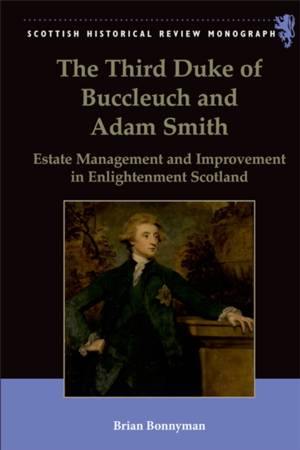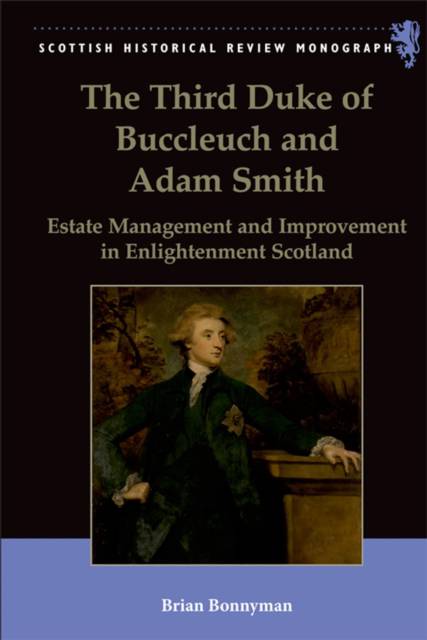
- Afhalen na 1 uur in een winkel met voorraad
- Gratis thuislevering in België vanaf € 30
- Ruim aanbod met 7 miljoen producten
- Afhalen na 1 uur in een winkel met voorraad
- Gratis thuislevering in België vanaf € 30
- Ruim aanbod met 7 miljoen producten
Zoeken
The Third Duke of Buccleuch and Adam Smith
Estate Management and Improvement in Enlightenment Scotland
Brian Bonnyman
€ 201,45
+ 402 punten
Uitvoering
Omschrijving
Henry Scott, the third Duke of Buccleuch (1746-1812), presided over the management of one of the largest landed estates in Britain during a time of dramatic agrarian, social and political change. Tutored and advised by the philosopher Adam Smith, the Duke was also an important patron of the Scottish Enlightenment, lauded by the Edinburgh literati the as an exemplar of patriotic nobility and civic virtue, while his alliance with Henry Dundas dominated Scottish politics for almost forty years. Combining the approaches of intellectual, economic and landscape history, this book examines the life and career of the third Duke, focusing in particular on his relationship with Adam Smith and the improvement of his extensive Scottish estates. By examining the influence of one of the eighteenth century's foremost philosophers of improvement upon the career of one Scotland's largest landowners, this book explores the various influences - intellectual, economic, moral and political - which helped shape Scotland's distinctive agricultural revolution. In its exploration of the cultural as well as the economic roots of improvement and in its assessment of previously unappreciated aspect of Adam Smith's career, this book will appeal to both specialist scholars and general readers interested in the Scottish Enlightenment, estate management and the culture of improvement in eighteenth-century Scotland.
Specificaties
Betrokkenen
- Auteur(s):
- Uitgeverij:
Inhoud
- Aantal bladzijden:
- 232
- Taal:
- Engels
- Reeks:
Eigenschappen
- Productcode (EAN):
- 9780748642007
- Verschijningsdatum:
- 16/07/2014
- Uitvoering:
- Hardcover
- Formaat:
- Genaaid
- Afmetingen:
- 160 mm x 236 mm
- Gewicht:
- 544 g

Alleen bij Standaard Boekhandel
+ 402 punten op je klantenkaart van Standaard Boekhandel
Beoordelingen
We publiceren alleen reviews die voldoen aan de voorwaarden voor reviews. Bekijk onze voorwaarden voor reviews.







